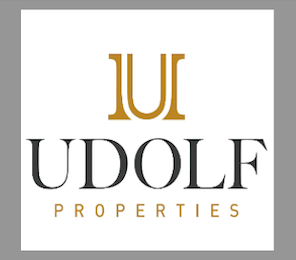By Shlomo Riskin ~
In the midst of the joyous celebration dedicating the desert Sanctuary, fire came out from before the Lord and devoured Nadav and Avihu, the two sons of Aaron, the High Priest. “And Moses said to Aaron, ‘that is what the Lord has said, saying that through those closest to Me shall I be sanctified…’”(Lev.10:3). Rashi quotes the following words that the rabbis attribute to Moses:
“Moses said to Aaron, ‘Aaron my brother, I know that this Temple Sanctuary will have to be sanctified by beloved friends of the Divine, and I thought that it would be either through you or through me. Now I see that they (Nadav and Avihu) were greater than both me and you’”….
According to this view, Nadav and Avihu were saintly individuals; worthy of being sacrificed on the altar of the desert Sanctuary, “VaYidom Aaron”, and Aaron silently acquiesced to God’s will. But why did the desert Sanctuary, and by extension any great advance of the Jewish nation, have to be dedicated by the deaths of great Jewish personalities? Why must the pages of our glorious history be drenched in the blood of holy martyrs and soaked by the tears of mourners they leave behind?
The only answer I can give is the one word answer that our Israeli children like to give to our questions about why they do what they do, “kakha,” that is how it is. Why must sacrifice be a necessary condition for redemption?
The pattern may be discerned as far back as the Covenant Between the Pieces, in which God guarantees Abram eternal seed (Gen 15:1-6) and the land of Israel (15:7). After this, a great fear descends upon Abram as he is told that his seed will be strangers in a strange land where they will be afflicted and enslaved until they leave, freed and enriched. God then commands Abram to circumcise himself and his entire male household. The blood of the covenant is thus built into the very male organ of propagation (Gen 17); the price of our nationhood is blood, sacrifice and affliction.
At our Passover seder, the celebration of our national birth, we retell the tale of our initial march from servitude to freedom in the words of the fully liberated Jew bringing his first fruits to the Holy Temple in Jerusalem: “My father, (Jacob), was almost destroyed by the Aramean (Laban), and he went down to Egypt, and he became there a great mighty and populous (rav) nation” (Deut 26:5). The author of the Passover Haggadah then explicates the text with the description presented by the prophet Ezekiel (16:7):
“I caused you to be populous (revavah) even as the vegetation of the field, and you did increase and grow up and you came to excellent beauty. Your breasts were fashioned and your hair was grown – yet you were naked and bare”.
The Hebrews in Egypt were numerous and powerful, but empty and bare of merit, of true character and courage. To achieve this, they had to undergo the suffering of Egyptian enslavement, having their male babies cast into the Nile. They had to place their lives on the line by sacrificing the “god” of the Egyptians to the God of Israel and the world. They had to place the blood of this sacrifice on their doorposts and they had to undergo circumcision, to demonstrate their readiness to shed blood for freedom, for independence, and for their right to worship God in their own way.
With all of this in mind, the author of the Haggadah returns to Ezekiel (16:6):
“And I passed over you, and I saw that you were rooted in your blood, and I say to you by that blood shall you live (the blood of circumcision).” It is your willingness to sacrifice for your ideals that make you worthy of emulation, that made you a special and “chosen” people!
And so the author of the Haggadah then returns to Biblical description of Hebrew suffering in Egypt, a suffering which was meant to teach us to “love the other, the stranger, because you were strangers in the land of Egypt.”
Why such necessary sacrifice? Kakha, because so it is; because such is the inscrutable will of the Almighty. And “ashreiha’am she kakhah lo,” happy is the nation which understands that its sacrifices are for the sake of the Almighty, for the purification of their nation, for the world message that freedom and the absolute value that every human being is created in God’s image — and that these are values worth fighting for, values worth committing blood for. May it be God’s will that we now begin our exit from enslavement and our entry into redemption, for us and the entire world.
Rabbi Shlomo Riskin is chancellor of Ohr Torah Stone and chief rabbi of Efrat, Israel.








 Southern New England Jewish Ledger
Southern New England Jewish Ledger










